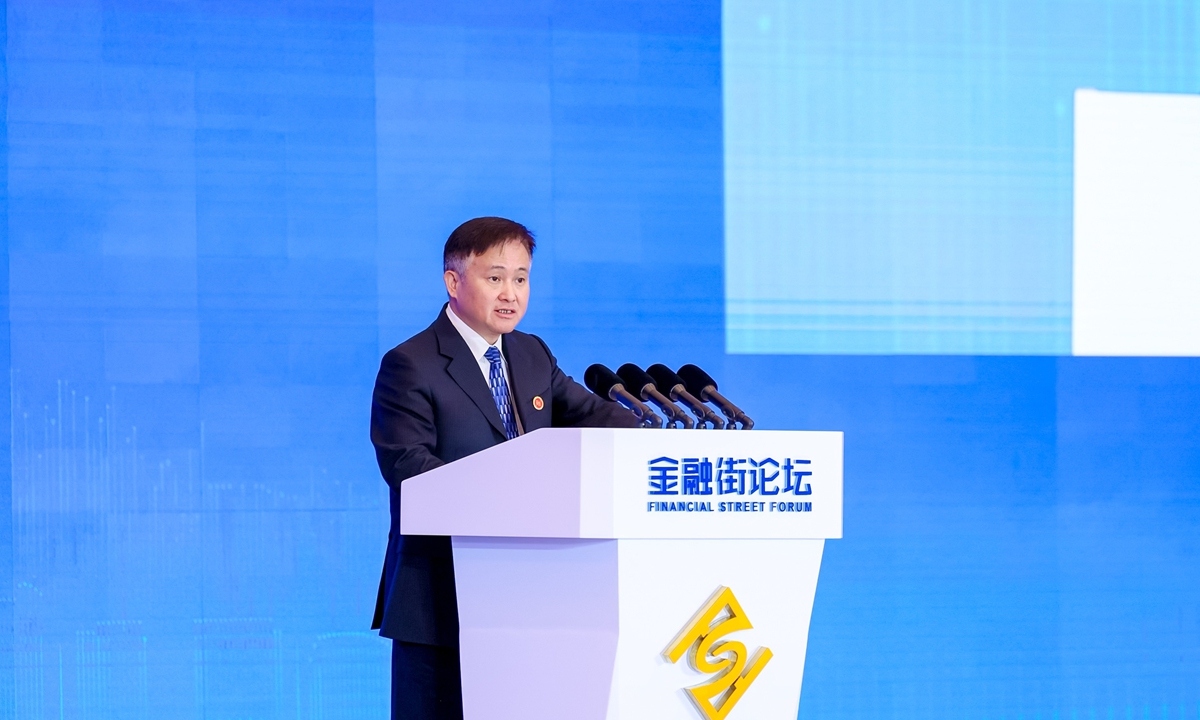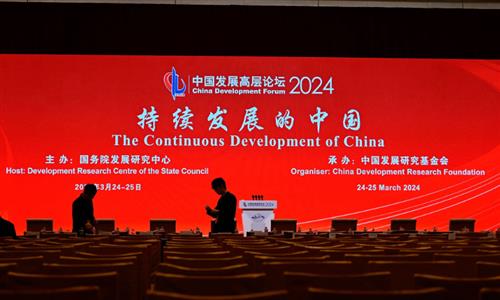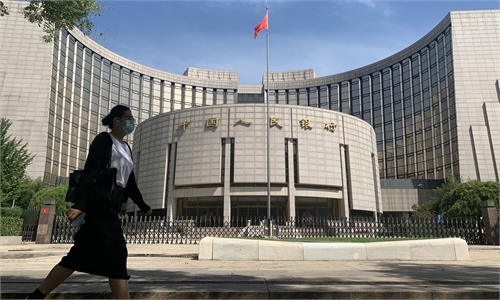China’s central bank sticks to accommodative monetary policy, cementing economic rebound: governor

Pan Gongsheng, governor of the People’s Bank of China (PBC), the central bank, said at the Financial Street Forum annual conference held in Beijing on November 8, 2023. Photo: Courtesy of the Financial Street Forum
The People’s Bank of China (PBC), the central bank, will adhere to its accommodative monetary policy, and strengthen counter-cyclical and cross-cyclical policy adjustments, in order to bolster China’s economic recovery, and create a favorable financial environment for the country’s economic and social development, PBC Governor Pan Gongsheng said on Wednesday at the 2024 Lujiazui Forum.
According to Pan, the central bank will focus on balancing the relationships between short-term and long-term factors, stabilizing growth and risk prevention, in the course of making due policy adjustments.
The PBC views maintaining consumer price stability while trying to promote a moderate recovery of the prices as an important consideration and flexibly use interest rates, reserve requirement ratios, and other policy tools, Pan said.
When it comes to stabilizing economic growth and managing financial sector risks, Pan said that the central bank will balance the relationship between supporting the growth of the real economy and maintaining the health of the financial institutions as well as promoting the high-quality economic development while preventing and resolving financial risks.
Pan noted that the importance of regulating domestic financial activities, taking into consideration of possible spillover effects from other economies, resulting from their economic and monetary policy cycles.
Meanwhile, Pan noted that the PBC will optimize the intermediate variables of monetary policy, gradually de-emphasize the focus on quantitative targets, and focus more on the role of interest rate regulation and control.
With the high-quality development and structural transformation of China’s economy, the growth of credit needed by the real economy is also changing. Changes in the growth rate of the total volume of money and credit are in fact a reflection of changes in the structure of the country’s economy, according to Pan.
Pan said that the statistical caliber of China's M1 was established 30 years ago. He said that financial products that meet this caliber have evolved following the country’s rapid development of financial innovations such as the facilitation of financial services and mobile payments, stressing the necessity to consider the dynamic improvement of the statistical caliber for money supply.
Moreover, qualitative terms such as “"basically matching the nominal economic growth" have been adapted to describe financial aggregate indicators such as M2, shifting away from solely focusing on quantitative targets.
Looking ahead, Pan noted the possibility to further optimize the intermediate variables of monetary policy and gradually dilute the focus on quantitative targets. He also stressed the importance to make the financial aggregates more of an observational indicator, while paying more attention to the role of interest rates.
Global Times



